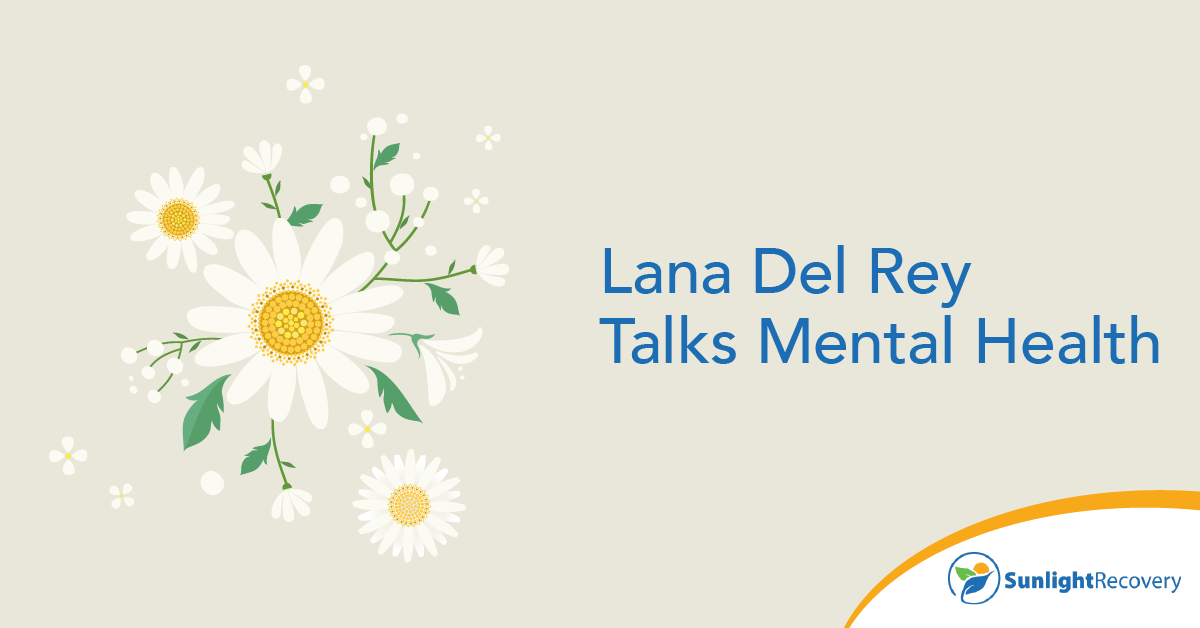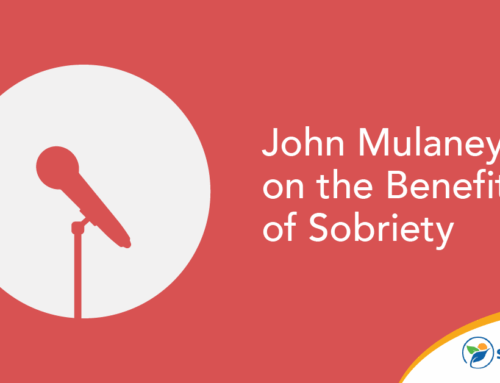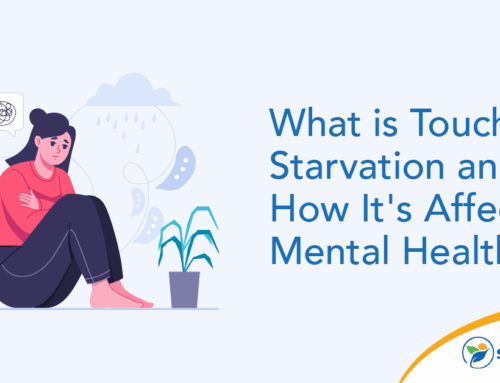Elizabeth Woolridge Grant, known professionally as, “Lana Del Rey”, made her way onto the music scene in 2011 with her first single, Video Games. Since then, she’s released 10 albums and won multiple awards with her soulful, ’60s-inspired ballads and tunes. Despite her numerous awards, success hasn’t always been easy for Del Rey. Over the years, she’s been very open and up-front about her struggles with mental illness and become a powerful advocate for mental health awareness. But does Lana Del Ray have Bipolar Disorder (BPD)?
The following article includes words from Del Rey about her struggles and symptoms of BPD and examines some of the common mental health struggles among musicians. It also details how seeking treatment is important and how others with mental illness can benefit from her inspiration.
What Lana Del Rey Has Shared About Her Mental Health
Lana Del Rey’s health struggles began long before she entered the public eye. In her early teens, she says she drank every day because she thought it was the cool thing to do. Many teens turn to alcohol as a way to fit in. In 2023, approximately 20% of teens ages 14 and 15 admitted to having at least one drink.
Del Rey eventually saw the dark side of drinking. Substance addiction often led to negative thoughts and feelings about mortality. She said she began to feel different from others, often asking herself questions such as, “Why are we here?” and “What’s the point?”. “My parents were worried, and I was worried. I knew it was a problem when I liked it (drinking) more than I liked doing anything else.” When she was just 14, her parents sent her away to boarding school in hopes of freeing her from addiction.
Many of the songs she wrote and performed from her album Born to Die were about her teen drinking years, particularly the song Carmen, which is about her time as a teenager struggling with addiction.
The Importance of Artist Vulnerability in Reducing Stigma
Approximately 1 in 5 adults in the United States has a mental illness. Despite these numbers, negative stigmas still surround these types of diagnoses. Individuals with mental illness may face discrimination at work, feel guilt or take blame for their condition and feel isolated and alone.
When celebrities come forward to talk about their mental health and how it’s impacted their life and success, they send a powerful message to millions of fans that it’s okay to have mental struggles. Many of Del Rey’s songs focus on anxiety, depression, or sadness. Individuals faced with these feelings may see their thoughts and feelings reflected in her music. Her songs help demonstrate that mental illness isn’t a character flaw but a health condition that can happen regardless of someone’s success, wealth or popularity.
Common Mental Health Struggles Among Musicians
Lana Del Rey’s struggles with mental health aren’t unusual. Hectic schedules, constant touring, poor quality of sleep and diet and a lack of routine can lead to mental and physical exhaustion. While music itself can help an individual with negative thoughts, stress from the industry can often outweigh the benefits.
Research suggests that a vast majority of musicians struggle with mental illness. This could be because daily life often consists of extreme highs, such as the feeling of performing in front of a crowd of fans, and intense lows, such as sitting alone in a hotel room.
Artists are often under pressure to create new songs on a deadline and produce work their fans will enjoy. Celebrities are also under the constant watch of fans and critics alike. For someone struggling with mental illness, being constantly judged can lead to feelings of inadequacy.
How Therapy and Support Can Make a Difference
In 2023, over 59 million adults in the United States received some form of mental health treatment. These treatments include inpatient and outpatient therapy, medication and counseling. Del Rey’s parents identified her struggles early in her teenage years and sought intervention.
Reaching out for help is one of the most important steps you can take when addressing mental health issues. Some of the most important benefits include:
- Gaining coping skills. Cognitive behavioral therapy and dialectical behavior therapy are types of talk therapies that help individuals work through their emotions and learn coping skills. These skills can help you work through your issues and problems more productively without turning to substance abuse.
- Improving communication skills. Therapy can teach you how to openly communicate what’s bothering you, which is beneficial for relationships. Effective communication can help you in all areas of your life.
- Learning conflict resolution. Therapy can teach you how to set healthy relationship boundaries and ask for what you need. It can also help you work through issues with others in a positive and direct way.
- Building a support network. Family and group meetings help you build a network of support that can get you through the tough times.
- Improving physical health. There’s a strong connection between physical and emotional health. Reducing stress can help lower your blood pressure and reduce your risk of multiple diseases.
Does Lana Del Rey Have BPD? Key Takeaways From Her Story
Does Lana Del Rey have Bipolar Disorder (BPD)? Del Rey’s BPD diagnosis hasn’t been confirmed. However, many of her songs and lyrics may suggest she still struggles with anxiety and depression. Whether an individual lives in the spotlight or not, there are several key takeaways from her story.
- Vulnerability is a sign of strength. Opening up about your struggle with mental illness doesn’t make you weak. Instead, it’s a sign of strength, allowing others to connect with you on a deeper level.
- Music can be a powerful healer. Music is one way to work through your emotions and allow healing to take place.
- Celebrities aren’t immune to struggle. Mental illness can affect anyone from any walk of life.
- Seeking help is courageous. It takes a strong person to admit they need help.
- You aren’t alone. No matter what you’re going through, there are others going through similar circumstances.
Reaching Out for Help
If you or someone you love is struggling with mental illness or BPD, you don’t have to face this alone. Contact Sunlight Recovery to learn more about our programs and what we have to offer.







